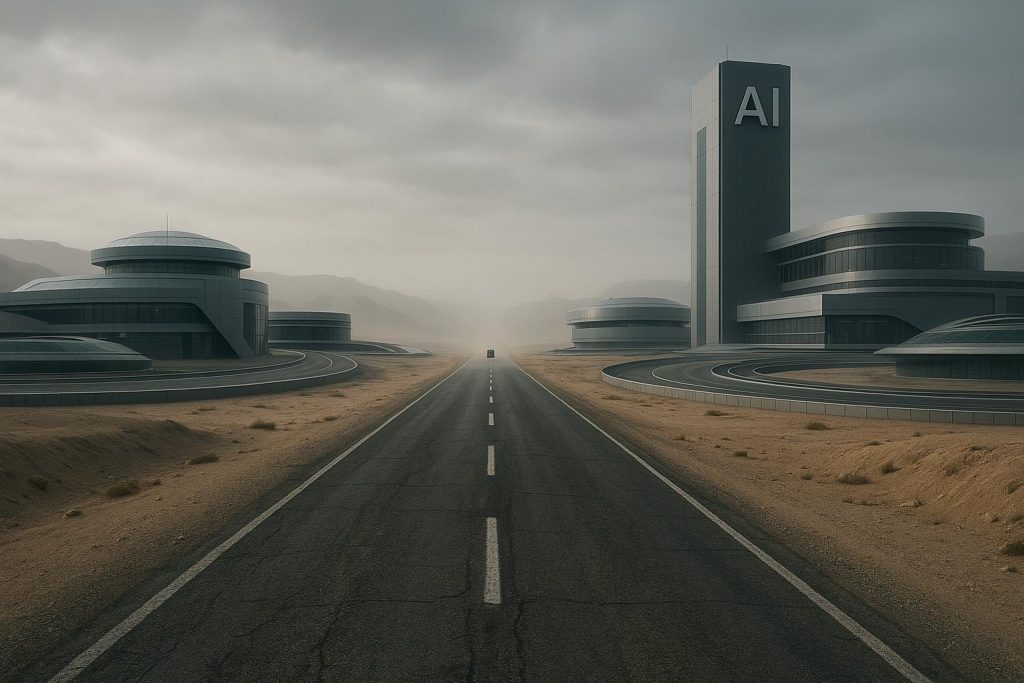Listen to the article
Israel solidifies its position as a global hub of AI innovation, with startups leading in autonomous vehicles, healthcare, cybersecurity, and robotics, backed by significant international investment and collaborations.
Israel’s AI startup ecosystem continues to establish itself as a powerhouse of innovation, driving forward diverse sectors from autonomous driving and healthcare to cybersecurity, construction, and robotics. Hosting approximately 2,300 AI companies and ranking prominently in AI-related employment, Israel has attracted significant capital investment, with nearly half of the country’s tech funding since 2018 flowing into AI ventures. Leading investors such as Sequoia and Insight Partners have spearheaded funding rounds, underscoring strong international confidence in Israel’s AI potential.
At the forefront of autonomous vehicle technology, Mobileye leverages cameras, radar, and neural network algorithms to enhance road safety by quickly detecting hazards and enabling smooth vehicle control. Complementing this, Innoviz Technologies focuses on state-of-the-art LiDAR sensors, crucial for real-time obstacle detection in self-driving cars, with major collaborations involving BMW and Magna. These innovations highlight Israel’s technical depth in sensor technology, supported by national artificial intelligence programmes aimed at advancing mobility and autonomous navigation.
Healthcare AI startups have attracted substantial venture capital and government grants, with digital health comprising the majority of AI health funding in Israel. Zebra Medical Vision applies deep learning to medical imaging, markedly accelerating diagnosis for conditions such as heart disease and lung nodules by integrating AI with hospital networks and electronic health records. Similarly, Aidoc utilises AI to streamline radiology workflows by identifying urgent cases with remarkable speed and accuracy, benefiting from national R&D initiatives that bolster AI-powered image analysis while navigating complex regulatory environments.
Cybersecurity remains a pivotal domain for Israeli AI firms, which collectively raised billions in 2024, reflecting escalating global cybersecurity challenges exacerbated by AI-driven threats. SentinelOne exemplifies this trend by combining machine learning and cloud security to detect and neutralise cyberattacks, with significant backing from Insight Partners and Sequoia. Its technology is embedded within cloud infrastructures of giants like Microsoft and Google, underscoring its critical role in safeguarding cloud workloads. Companies like Blockaid, specialising in crypto wallet security, further demonstrate the sector’s agility amid geopolitical uncertainties. Complementing this momentum, Glilot Capital recently raised $500 million to establish early-stage AI and cybersecurity funds, signalling sustained investor enthusiasm driven by international financial institutions.
Innovations beyond these core sectors are equally noteworthy. Israeli startup Gong.io revolutionizes sales through AI-powered conversation analysis, providing sales teams with deep insights gleaned from natural language processing and deep learning to optimise customer engagement. In construction, Buildots employs AI to cut project costs and delays by monitoring progress via advanced analytics, securing $15 million in funding led by Intel Capital, which views AI as transformative for managing large-scale construction efforts.
Robotics and AI perception technologies also thrive in Israel. Cortica’s vision AI integrates neural networks and sensor fusion to enhance factory automation, renewable energy, and climate tech applications, securing a dominant share of national robotics funding. Similarly, Figure Robotics recently raised over $1 billion in funding to expand humanoid robots for various uses, supported by investors such as NVIDIA and Intel Capital. In maritime safety, Orca AI utilises computer vision and satellite data to enable autonomous navigation and hazard detection for ships, conducting real-world port tests that affirm Israel’s growing influence in transport AI.
Nexar packs computer vision technology into AI-enabled dashcams that record road conditions and collisions, generating valuable data for urban planners to enhance traffic safety. This system epitomizes the synergy between self-driving car innovations and practical road safety applications, backed by global tech firms and venture capital.
Moreover, Israeli AI hardware development is invigorated by companies like Hailo, a chipmaker focusing on AI accelerators designed for local device usage without cloud dependency. Its recent $120 million funding round, with customers including Schneider Electric and Dell Technologies, reflects the global appetite for edge AI solutions that enhance processing power in personal computing and automotive infotainment.
Israel’s AI landscape is supported not only by vibrant private investment but also through partnerships with multinational corporations and government initiatives. The collaboration between OurCrowd and Nvidia accelerates the growth of Israeli AI startups by integrating them into Nvidia’s Inception programme, providing access to cutting-edge technology and venture networks. This reflects a broader commitment to maintaining Israel’s position at the forefront of AI innovation on the global stage.
However, challenges such as regulatory complexity, data privacy constraints, and geopolitical tensions persist. Despite these obstacles, Israel’s AI startups consistently demonstrate resilience, adaptability, and an ability to attract major global investors. Their advancements in AI-driven diagnostics, cybersecurity, autonomous systems, and industrial automation underscore Israel’s significant role in shaping the future of global technology.
📌 Reference Map:
- Paragraph 1 – [1], [2], [5], [7]
- Paragraph 2 – [1], [6]
- Paragraph 3 – [1]
- Paragraph 4 – [1], [2], [5]
- Paragraph 5 – [1], [3], [7]
- Paragraph 6 – [1], [4]
- Paragraph 7 – [1]
- Paragraph 8 – [1], [6], [7]
- Paragraph 9 – [1], [7]
- Paragraph 10 – [1], [2], [5], [7]
Source: Fuse Wire Services


